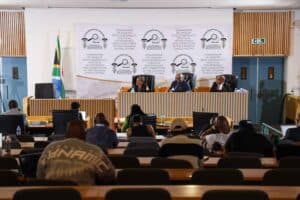There is a faint ripple of corporate panic that echoes their 1985 response to President PW Botha’s failure to honour his promise to dismantle apartheid.

South Africa is in danger of becoming a failed state. That’s a prediction aired so often in the past few years that it is becoming stale.
What’s different now, however, is that it’s a refrain increasingly heard from within one of the most conservative and cautious segments of society, the corporate sector. It’s a significant development.
Business is innately cautious. That’s a reality seared upon the collective consciousness of South African business during the apartheid years, that you cross government only at your peril.
In 1994, there was a changing of the guard but not in the rules of engagement. A back-scratching accommodation had to be found. Corporate SA laid out its honey pots and the ANC elite feasted like kings.
ALSO READ: 2023 Budget: SMEs need fundamental, large-scale interventions
Although corporate interests were lavishly rewarded by these newly greased empowerment palms, there was an implicit warning: don’t rock the boat. Or as the sage Buddha of Nkandla was fond of warning: “It’s very cold outside the ANC.”
Now, suddenly, there is a faint ripple of corporate panic that echoes their 1985 response to President PW Botha’s failure to honour his promise “to cross the Rubicon” and dismantle apartheid.
Similarly, there is today frustration, anger and despair that Ramaphosa’s promised new dawn has been shown to be a conjuring trick.
This week, Steve Phiri, the chief executive of Royal Bafokeng Platinum, told an industry conference SA was nearing the precipice of failed state status because of the government’s inability to ensure access to critical services.
His comments echoed those of Ralph Mupita, CEO of MTN a fortnight ago, that we are in danger of being “a failed nation-state”.
ALSO READ: State of small businesses in South Africa shows how important they are to the country
Recently, Prof Bonang Mohale, the chair of Bidvest Group and Business Unity SA, went further: “We are not a failing state but a failed state.”
Standard Bank CEO Sim Tshabalala has said that while the bank estimated as low a complete power grid collapse, such a meltdown would unleash “Armageddon”.
Iain Williamson, CEO of Old Mutual, has warned that the failure to remedy load shedding will lead to crop failure, higher food prices and shortages of certain foods.
Nedbank CEO Mike Brown earlier this month warned of increasing business paralysis because of the infrastructural failures of the state. Business worries, too, about growing political risk.
Remgro CEO Jannie Durand said last week that the government’s close alignment with Russia posed a clear risk to trade relations and export revenue.
ALSO READ: Businesses offering millions to reduce load-shedding
Similarly, presenting his group’s annual results, First Rand CEO Alan Pullinger said the government’s cosy relationship with Russia posed a “catastrophic risk”.
While there are good reasons for corporate South Africa’s disillusionment, there is a harshness in tone to many of these comments that is remarkable given how obsequious towards government the corporate sector was previously.
In Rapport, Gerhard Papenfus, executive head of the employer organisation Neasa, argues that the ANC and big business were in cahoots for years. Consequently – and frustratingly – telling the truth and calling things as they were, was simply not tolerated.
“The talking is only starting now,” said Papenfus. “Now that things are completely broken.”
ALSO READ: Businesses threaten to leave Pietermaritzburg if proposed tariff hikes are approved
The disaffection also has the air of the spurned lover about it.
Economist Thabi Leoka gets to the nitty-gritty in that same article. Corporate SA and the ANC, said Leoka, since 1994 had a cosily symbiotic relationship.
“But now sentiments have soured and the business sector is saying: ‘This is not the agreement we had.’” In other words, the honeymoon is over.






